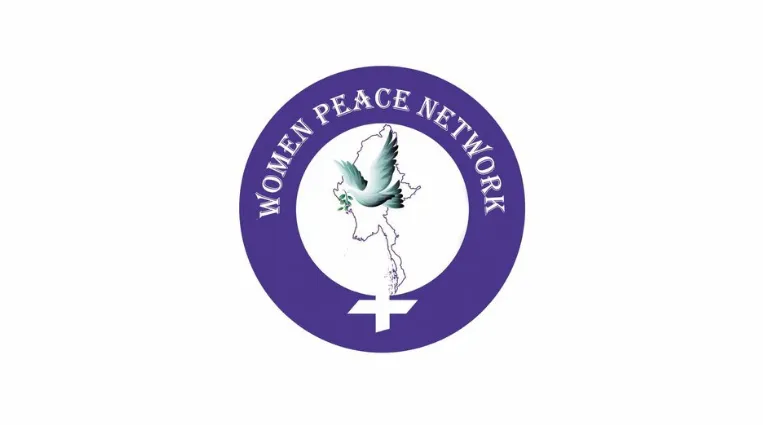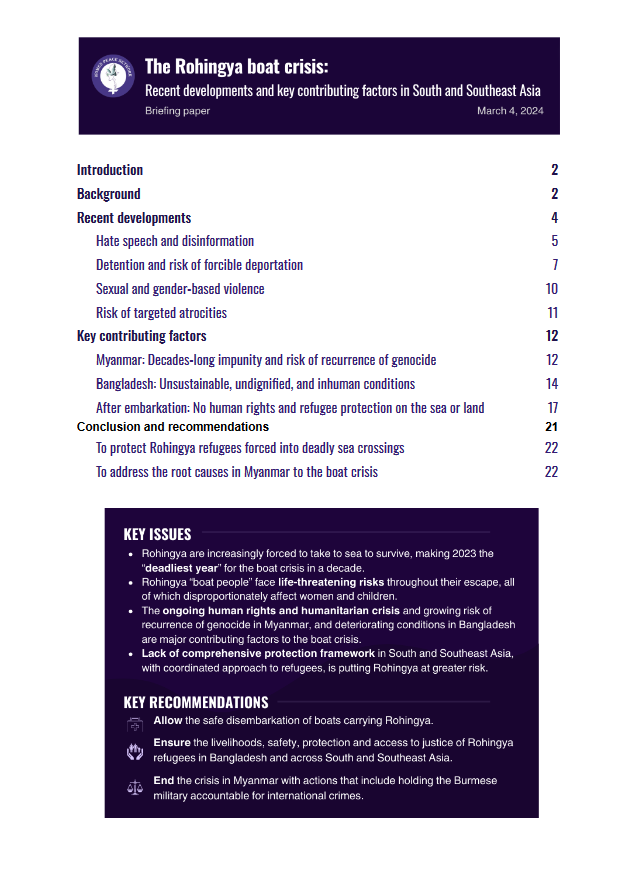The Rohingya boat crisis: Recent developments and key contributing factors in South and Southeast Asia
04 March 2024


Even after enduring over thirty years of systematic persecution, apartheid-like conditions, waves of state-sponsored violence, and genocide, Rohingya continue to struggle to survive as an ethnic and religious minority indigenous to Myanmar. Death continues to loom over its around 600,000 surviving members with a growing risk of recurrence of genocide in their homes in Rakhine State, and the over one million seeking refuge beyond their ancestral borders in exacerbating, inhuman conditions. Many more Rohingya thus have had no choice but to flee over land and sea, being exposed to human trafficking, torture, sexual violence, forced marriage and servitude, arrest and detention, exploitation, hate speech and disinformation, and further threats to their lives all for their freedom, liberty, and survival. Desperation for a dignified future for them and their children is becoming even more acute: the year 2023 was the “deadliest year” on record in a decade for Rohingya forced into sea crossings across the Andaman Sea and the Bay of Bengal according to the Office of the United Nations High Commissioner for Refugees (“UNHCR”). Yet, Rohingya refugees remain barred from finding safety, protection, livelihoods – human life – that they envision, with women and children bearing the brunt of decades-long, international and regional negligence of their generational plight.
In this briefing paper, Women’s Peace Network (“WPN”) addresses the deteriorating situation of Rohingya across South and Southeast Asia, and draws attention to the deadly sea crossings – the “boat crisis” – and those who have been forced into it: the “boat people.” It analyzes the background and key contributing factors to the boat crisis as a whole, including its root causes, and life-threatening abuses faced by Rohingya boat people, such as those who were recently permitted to land in Aceh, Indonesia. WPN also provides recommendations to regional and international actors to effectively and comprehensively address the crisis, as well as to ensure Rohingya’s safe, voluntary, sustainable, and dignified repatriation in the near future.
Announcements
28 February 2025
Asian NGO Network on National Human Rights Institutions , CSO Working Group on Independent National Human Rights Institution (Burma/Myanmar)
Open letter: Removal of the membership of the dis-accredited Myanmar National Human Rights Commission from the Southeast Asia National Human Rights Institution Forum

Progressive Voice is a participatory rights-based policy research and advocacy organization rooted in civil society, that maintains strong networks and relationships with grassroots organizations and community-based organizations throughout Myanmar. It acts as a bridge to the international community and international policymakers by amplifying voices from the ground, and advocating for a rights-based policy narrative.